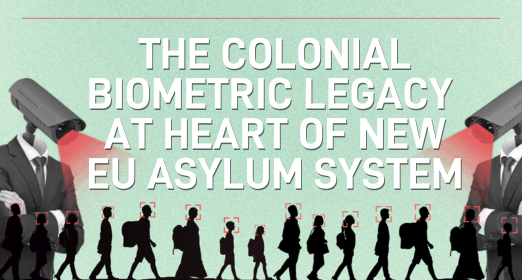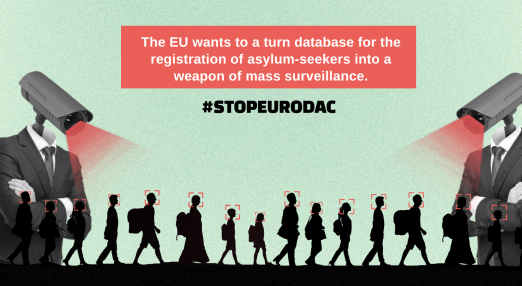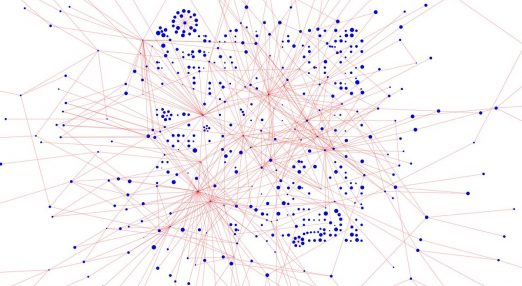Eurodac
Filter by...
-

The colonial biometric legacy at heart of new EU asylum system
On Wednesday (10 April), the EU is set to vote on a new set of asylum and migration reforms. Among the many controversial changes proposed in the new migration pact, one went almost unnoticed — a seemingly innocent reform of the EU's asylum database, EURODAC. Although framed as purely technical adjustments, the reality is far more malicious. The changes to EURODAC will massively exacerbate violence against people on the move.
Read more
-

Civil society calls for an end to the expansion of EU’s EURODAC database
Civil society is calling for an end to the expansion of EURODAC, the EU database for the registration of asylum-seekers. EURODAC is being transformed into an expansive, violent surveillance tool that will treat people seeking protection as crime suspects.
Read more
-

Civil society calls for the EU AI act to better protect people on the move
In this open letter, 195 organisations and individuals call on the EU to protect people on the move. As the European Parliament amends the Artificial Intelligence Act (AI Act), preventing AI harms in the field of AI and migration is vital. AI systems are increasingly developed, tested and deployed to judge and control migrants and people on the move in harmful ways.
Read more
-

Warnings against arbitrariness and mass surveillance in EURODAC
Four Members of the European Parliament in charge of leading the negotiations sent additional questions on data protection related to the EURODAC proposal to the EDPS. This comes as a result of the concerns of fundamental rights violations raised by several organisations protecting the rights of people on the move, children and digital rights, including EDRi, in an open letter. Read a summary of the EDPS' answers.
Read more
-

Eurodac: Council seeks swift agreement on expanded migrant biometric database
The Slovenian Presidency of the Council is planning to accelerate negotiations on a vast expansion of the Eurodac database, which will hold sensitive data on millions of asylum seekers and migrants in an irregular situation, by 'delinking' the proposed rules from other EU asylum and migration laws under discussion.
Read more
-

Intensified surveillance at EU borders: EURODAC reform needs a radical policy shift
In an open letter addressed to the European Parliament Civil Liberties, Justice and Home Affairs Committee, 34 organisations protecting the rights of people on the move, children and digital rights including European Digital Rights (EDRi) urge policymakers to radically change the direction of the EURODAC reform – the European Union (EU) database storing asylum seekers’ and migrants’ personal data - in order to respect fundamental rights and international law.
Read more
-

Eurodac database repurposed to surveil migrants
Eurodac is the EU database used to store asylum seekers’ and refugees’ data, as well as certain categories of “irregular” migrants. By the end of 2019, the EU stored almost 6 million peoples’ fingerprint sets in the database. Research show how legislative developments transform the Eurodac database into “a powerful tool for mass surveillance”, endangering migrants' fundamental human rights.
Read more
-

EC wants to add facial recognition to transnational databases
On 4 May 2016, the European Commission (EC) published a proposal to recast the EURODAC Regulation. The European Automated Fingerprint Identification System (EURODAC) was initially introduced in 2003 to establish an EU asylum fingerprint database, and to share this information with national law enforcement authorities and Europol. According to this proposal, if a person applies […]
Read more
-

FAQ: Passenger Name Records (PNR)
The European Union will adopt soon a Directive on the long-term storage and use of “Passenger Name Records” (PNR) for the purpose of profiling individuals as possible serious criminals or terrorists.
Read more
